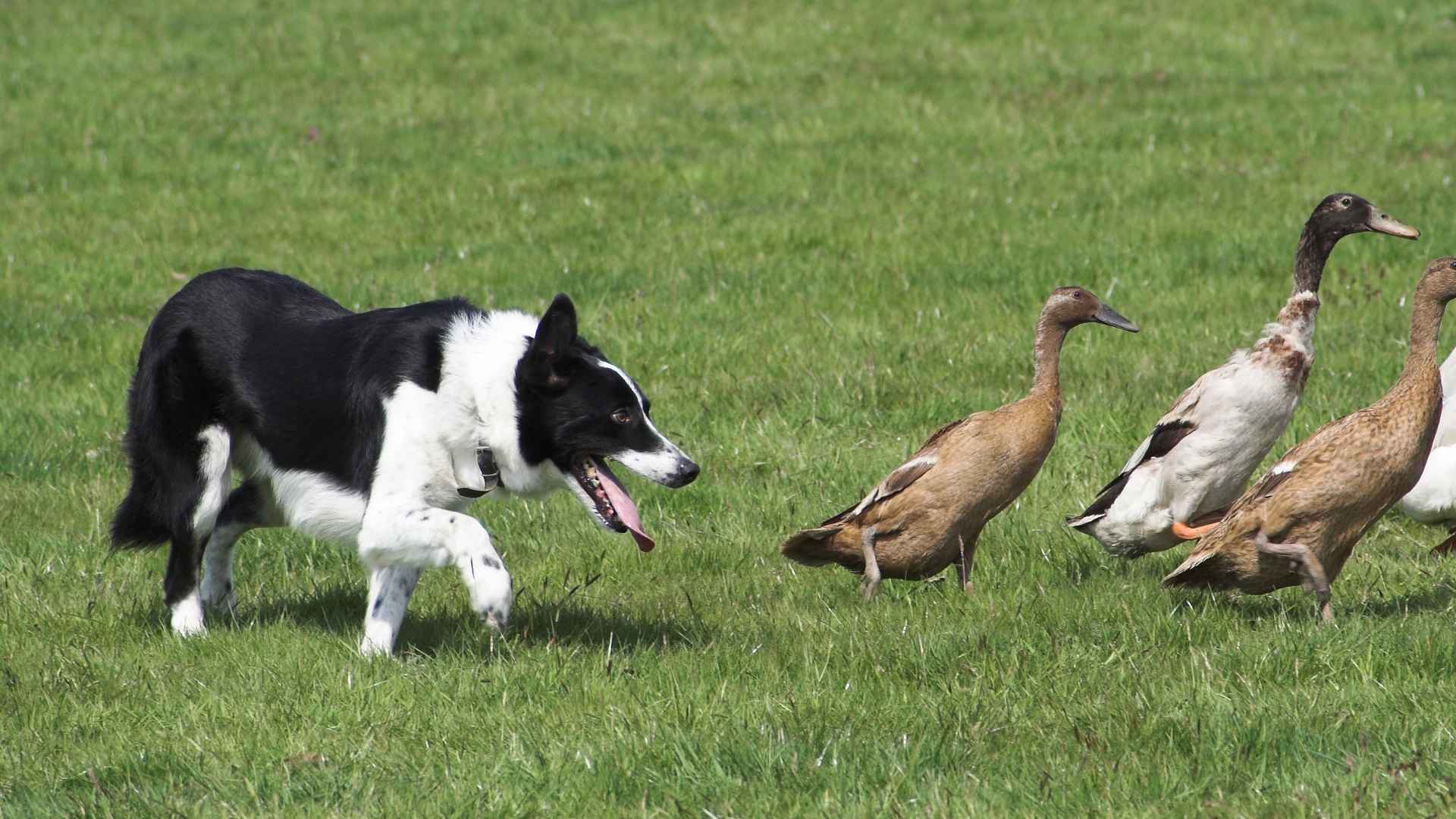When most people think of herding dogs, they picture flocks of sheep, sprawling farms, and a dog zig-zagging across fields. But did you know some dog breeds are talented duck herders, too? That’s right—while ducks might waddle and flap in unpredictable ways, certain dogs are naturals at guiding them with incredible skill and finesse.
Duck herding isn’t just a novelty—it’s a real job, a fun sport, and a fascinating display of instinct and intelligence. These herding dogs are known for their sharp focus and gentle yet firm approach, making them perfect for working with feathered flocks.
Whether you’re managing a small farm, diving into canine sports, or just curious about this quirky talent, this guide will introduce you to the best duck-herding breeds out there.
Get ready to be impressed by these feather-wrangling phenoms—because when it comes to precision, patience, and poultry control, these dogs don’t duck around.
Dog Breeds That Excel in Herding Ducks
1. Pembroke Welsh Corgi
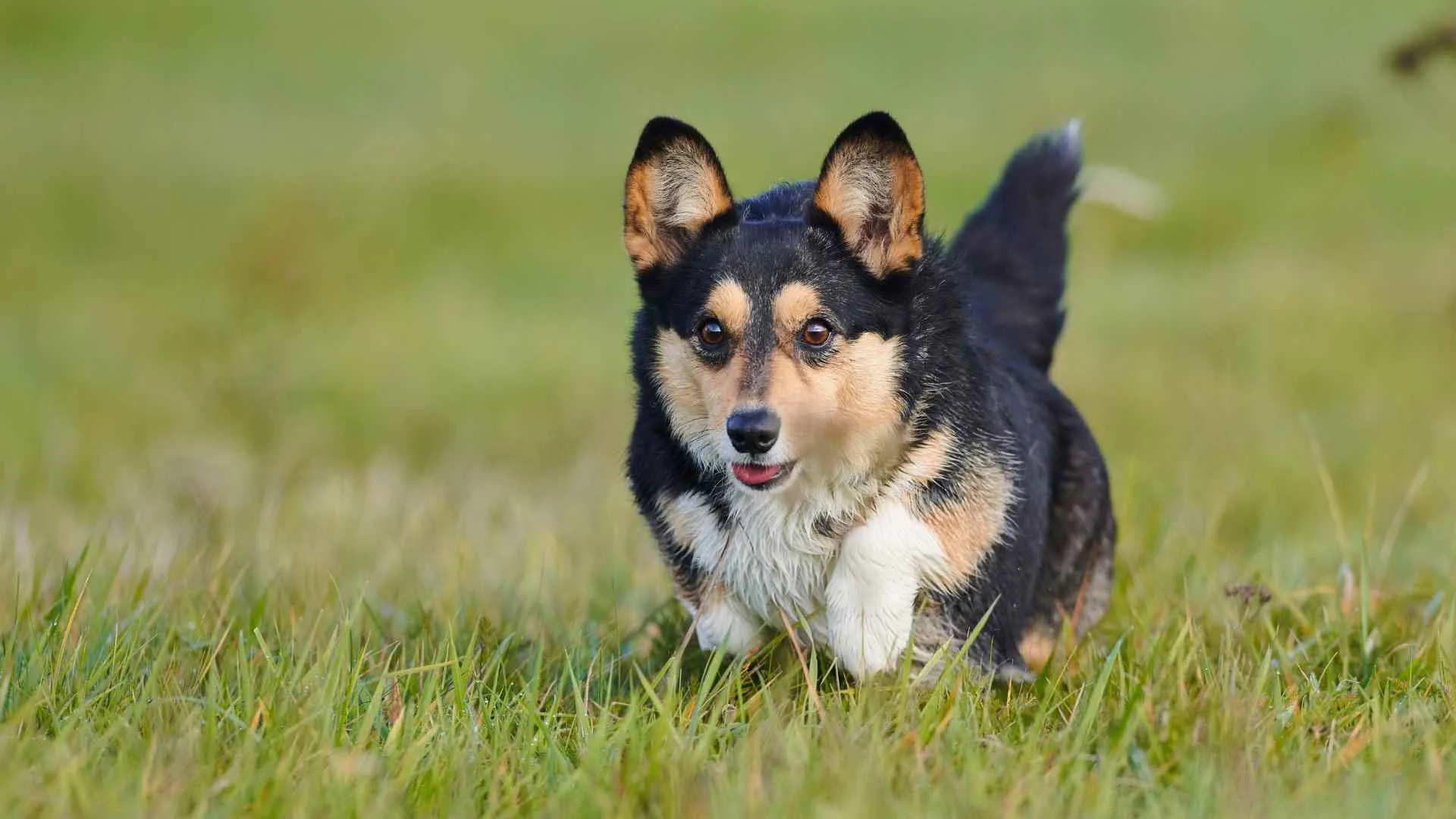
Don’t let the short legs fool you—Pembroke Welsh Corgis are elite-level duck herders with a long history of working livestock. Originally bred in Wales to herd cattle (yes, actual cows!), these little dynamos have all the instincts, intelligence, and agility to handle ducks with style.
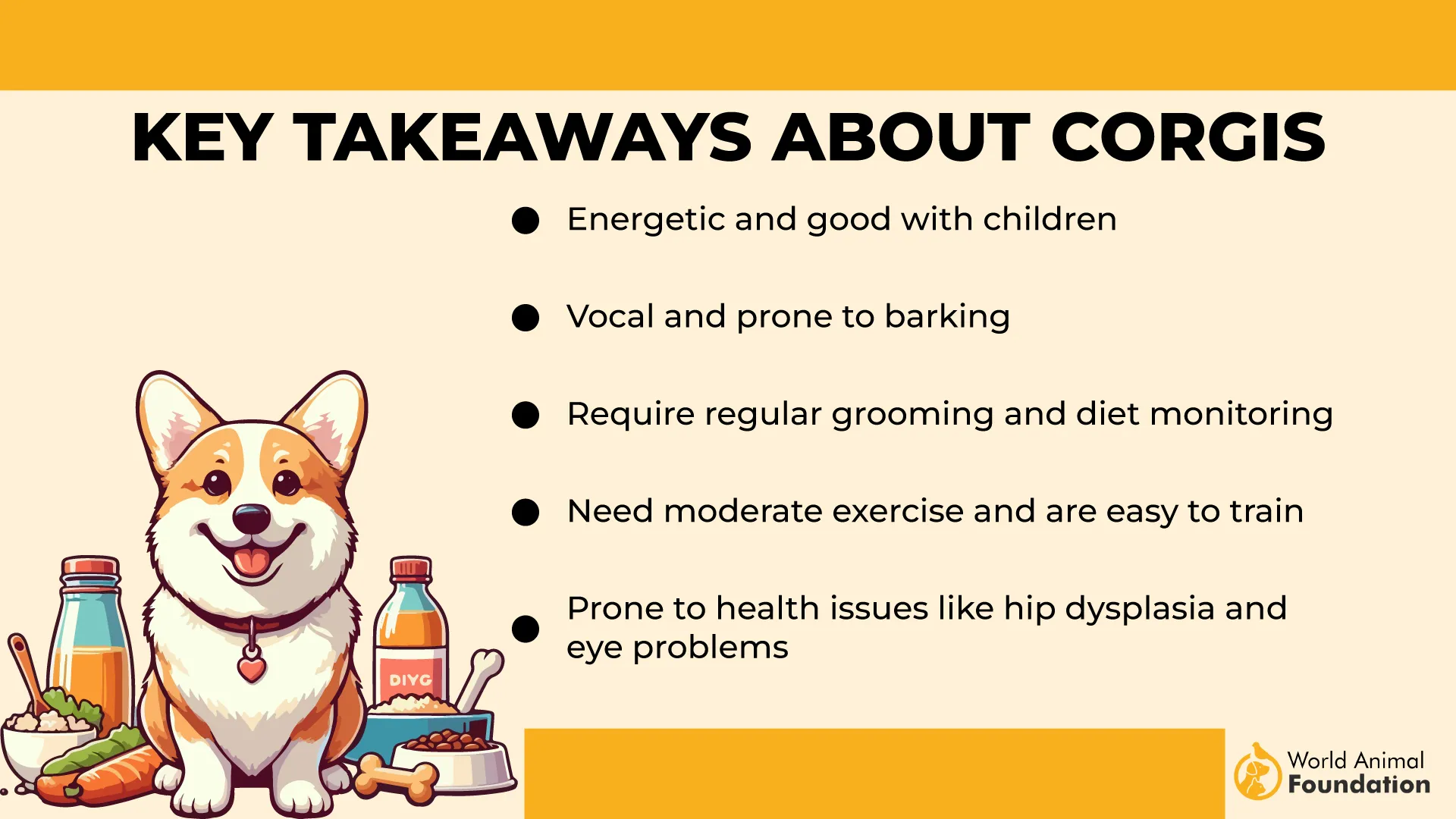
Corgis are bursting with personality: they’re confident, clever, and full of energy. These pups are known for their sharp intelligence and eagerness to please, making them fast learners and quick responders when it comes to herding commands.
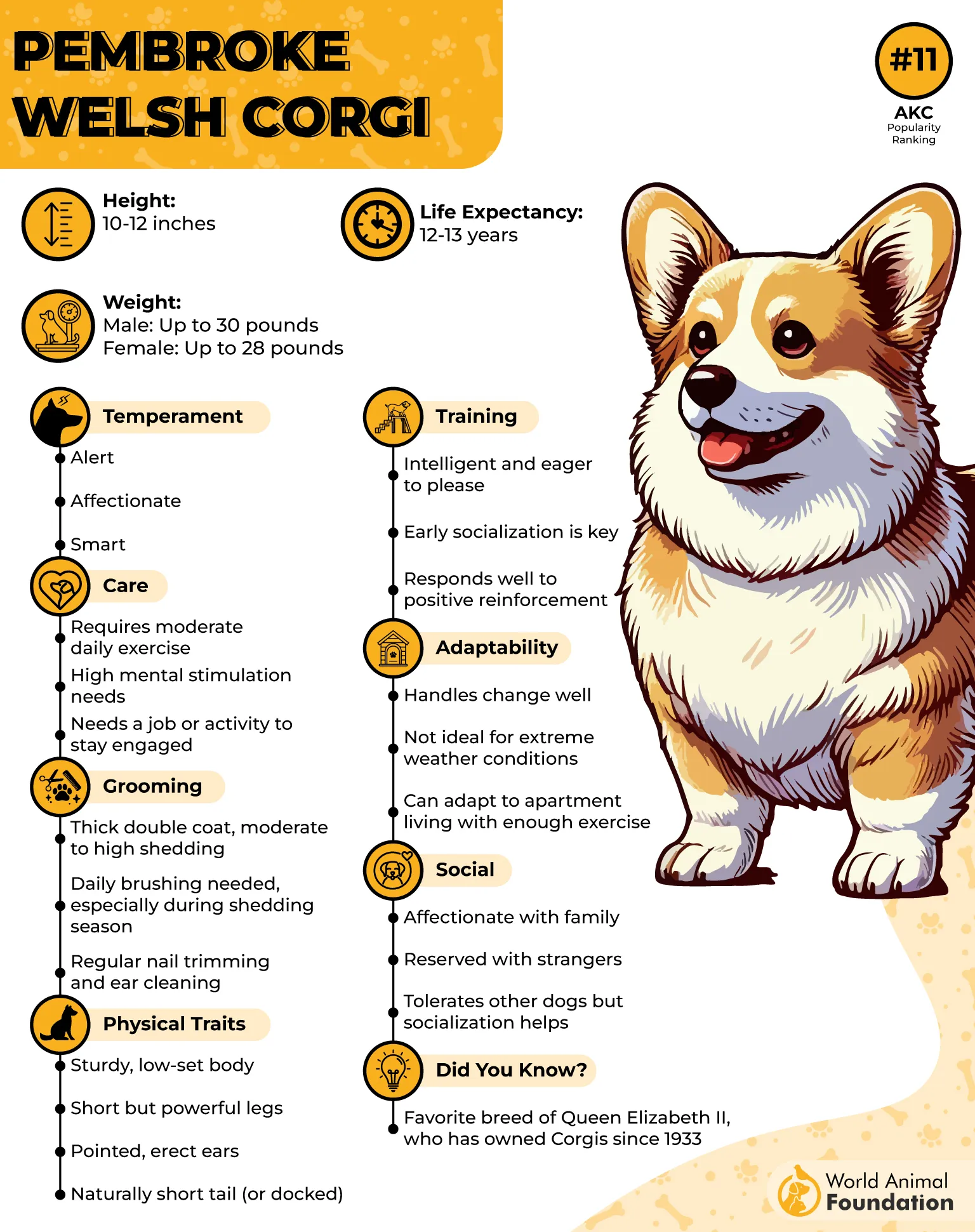
They’re bold without being bossy (okay, maybe a little bossy), and their playful nature means they approach herding with enthusiasm and just a touch of sass.
Despite their compact size, they carry themselves with the confidence of a much larger dog. Loyal to the core, Pembrokes thrive on companionship and love being at the center of family life—even if that “family” includes a few waddling ducks.
Why They’re Great at Duck Herding:
Quick on their paws: Their short stature gives them a low center of gravity, perfect for making those sharp herding turns. Ducks don’t stand a chance of escaping the fluff patrol.
Smart & Trainable: Corgis pick up commands quickly and respond well to positive reinforcement. Herding ducks becomes more of a strategic game than a physical challenge.
Natural Instincts: They were literally born to herd—and not just cattle. Their instincts easily translate to smaller, more waddly targets like ducks.
Fun Fact: Their signature “butt wiggle” is actually a stealth tactic to distract ducks (probably). Or maybe it’s just adorable.
2. Australian Cattle Dog
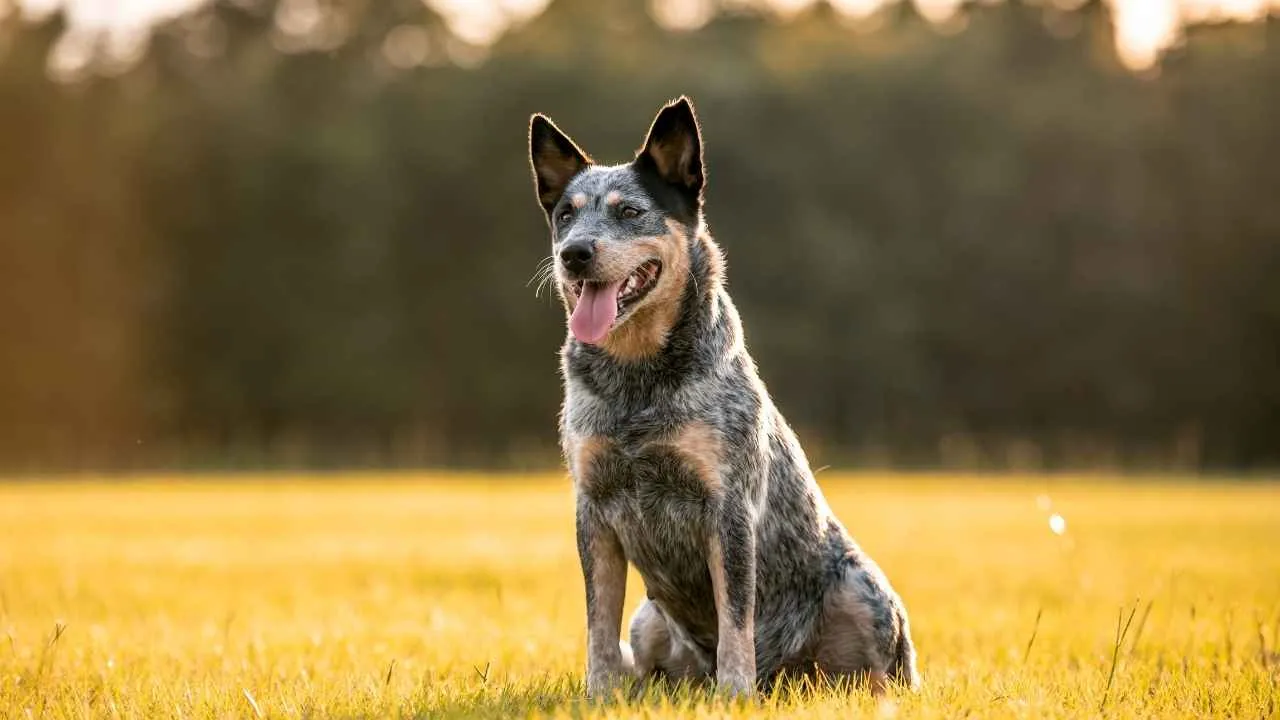
If ducks had nightmares, it would probably be of an Australian Cattle Dog zipping across the field with laser focus and unmatched speed. Originally bred to herd stubborn cattle across rugged Australian terrain, these dogs are more than equipped to handle a few feathery rebels.
These pups are all business with a side of sass. Loyal to their people and suspicious of strangers, Australian Cattle Dogs form deep bonds with their owners and will herd just about anything—including children, cats, or wayward vacuum cleaners.
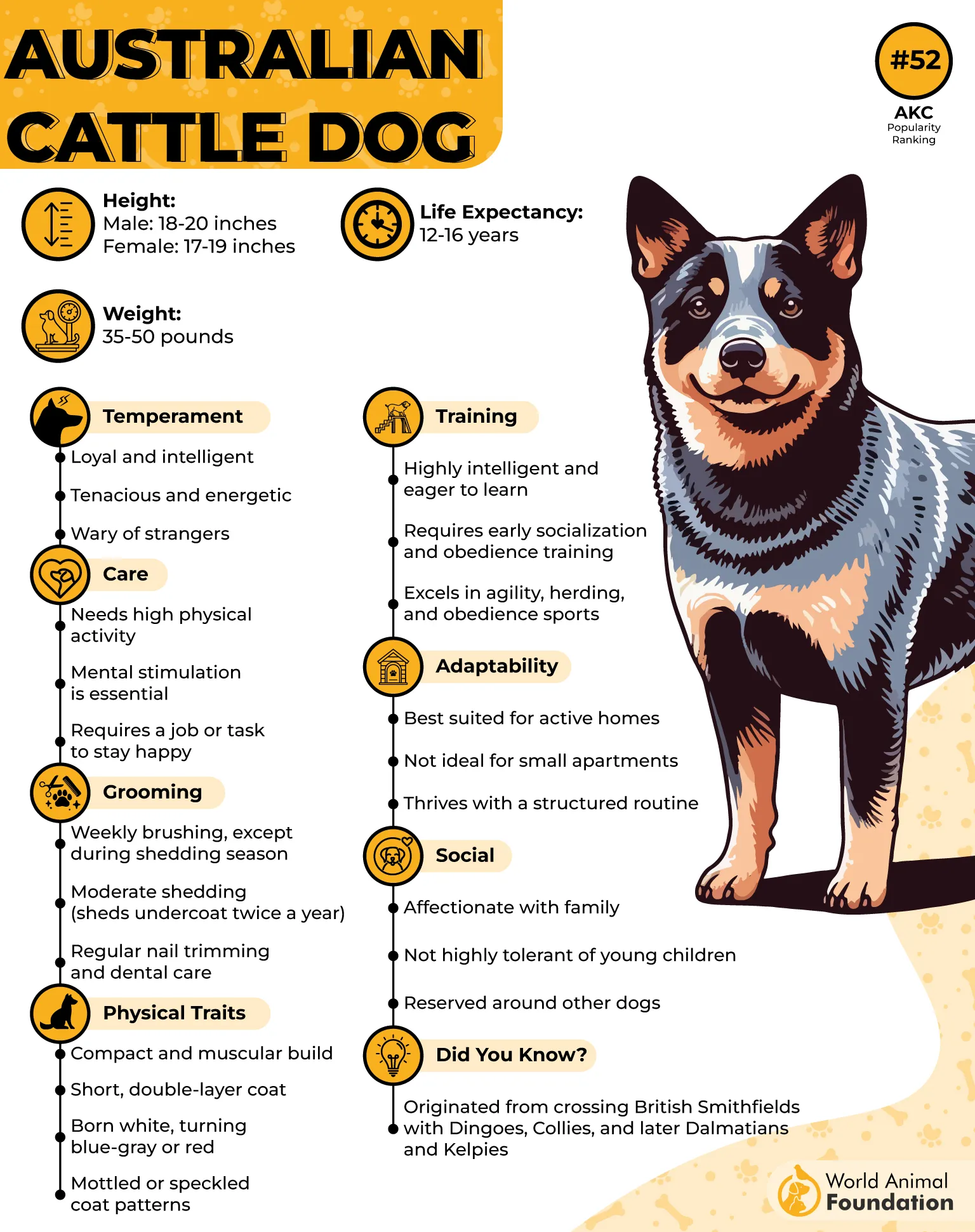
They are whip-smart, fiercely independent, and not the type to back down from a challenge. They thrive on problem-solving and love a good task, so herding ducks? That’s basically their version of a fun afternoon hobby.
Why They’re Great at Duck Herding:
Super Intelligent: These dogs practically come pre-loaded with a PhD in herding sciences.
Athletic Powerhouses: Agile, fast, and tireless—they can run circles around ducks and other herding breeds.
Laser Focus: Once they’re in “work mode,” even a flying cheeseburger might not distract them. (Okay, maybe a cheeseburger.)
Fun Fact: Australian Cattle Dogs are known for being “heelers”—they nip at the heels of livestock. With ducks, they dial it down to a herding dance instead of a nipping tango.
3. Samoyed
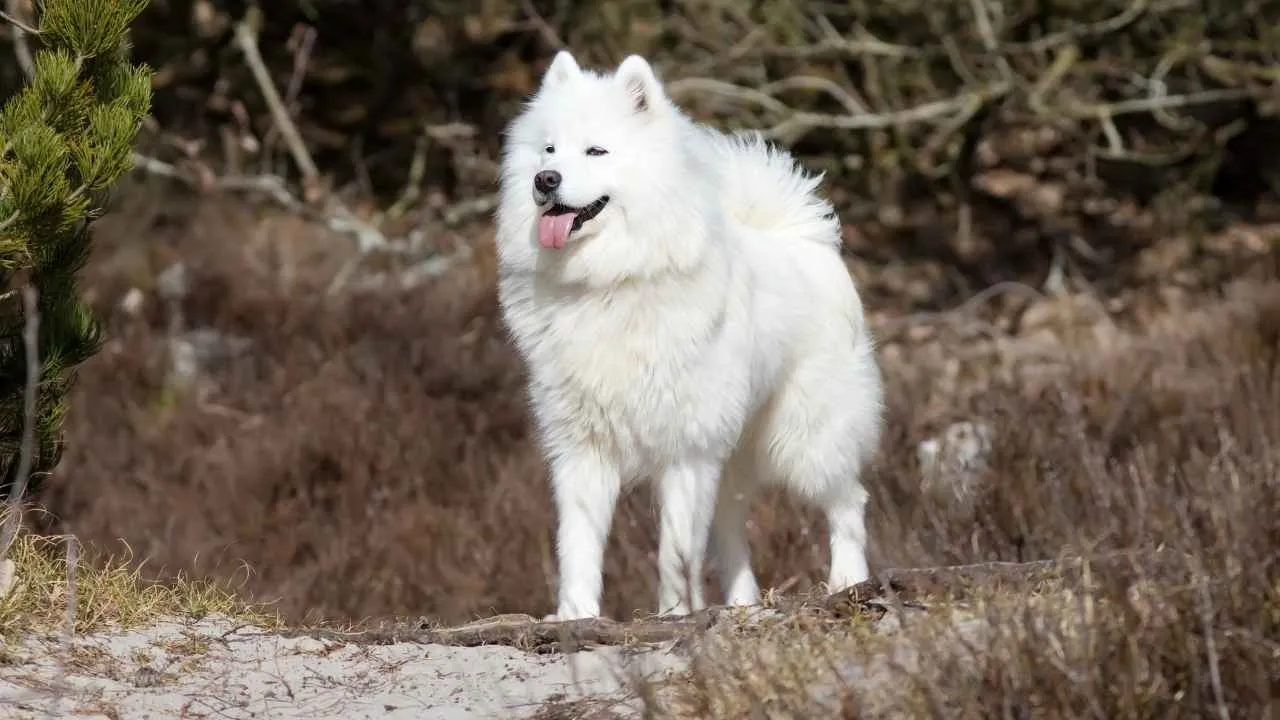
The Samoyed may look like a living snowball with a permanent smile, but don’t be fooled by that fluff—they’re hard workers with a long history of herding reindeer in freezing Siberian temperatures. Swap reindeer for ducks, and you’ve got yourself a charismatic, chilly-weather herder.
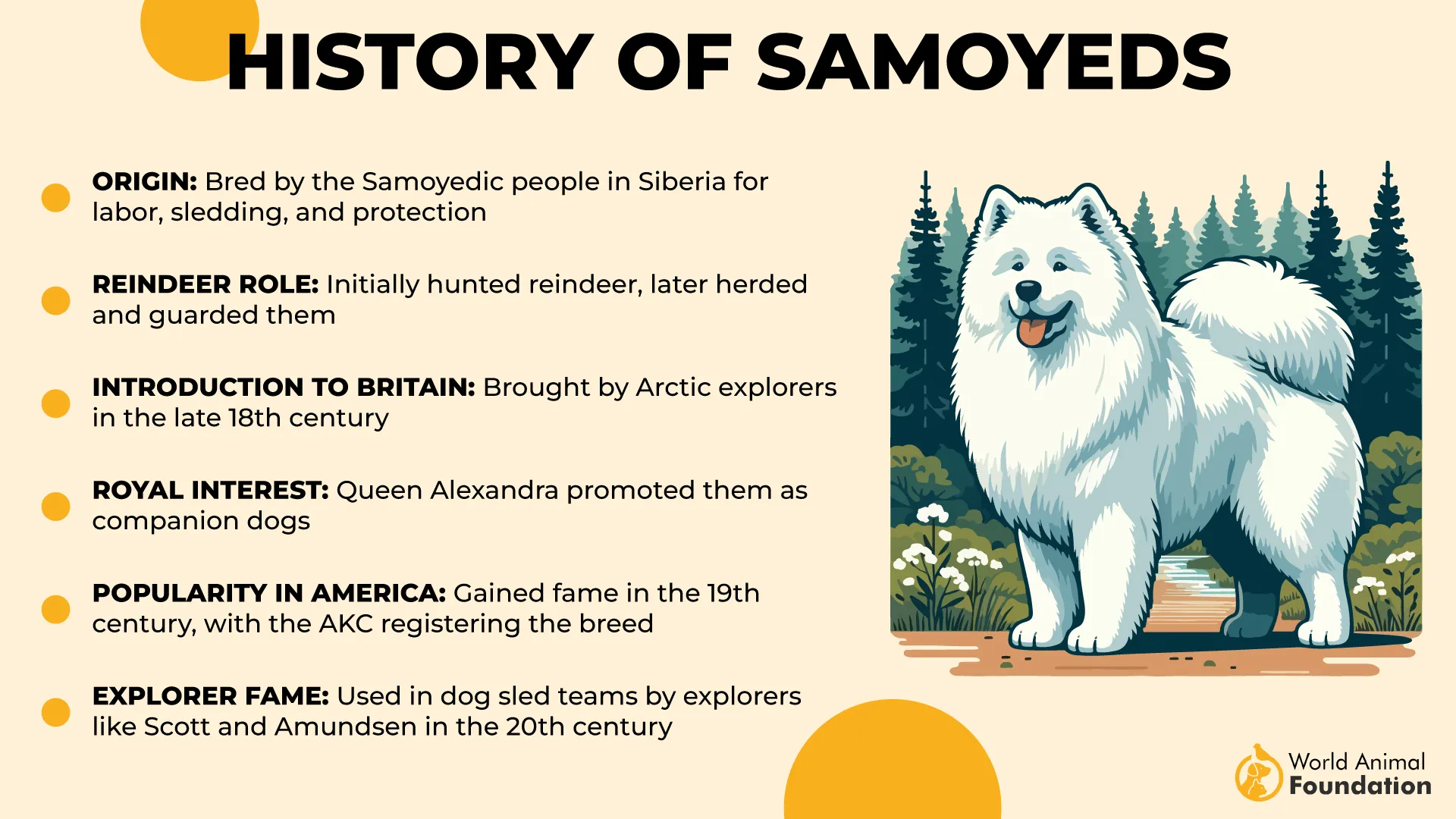
The Samoyed is a large, beautiful dog breed famous for its fluffy white coat. Originating from Siberia, these dogs were bred by the Samoyede people to herd reindeer, pull sleds, and keep their owners warm in harsh Arctic conditions.
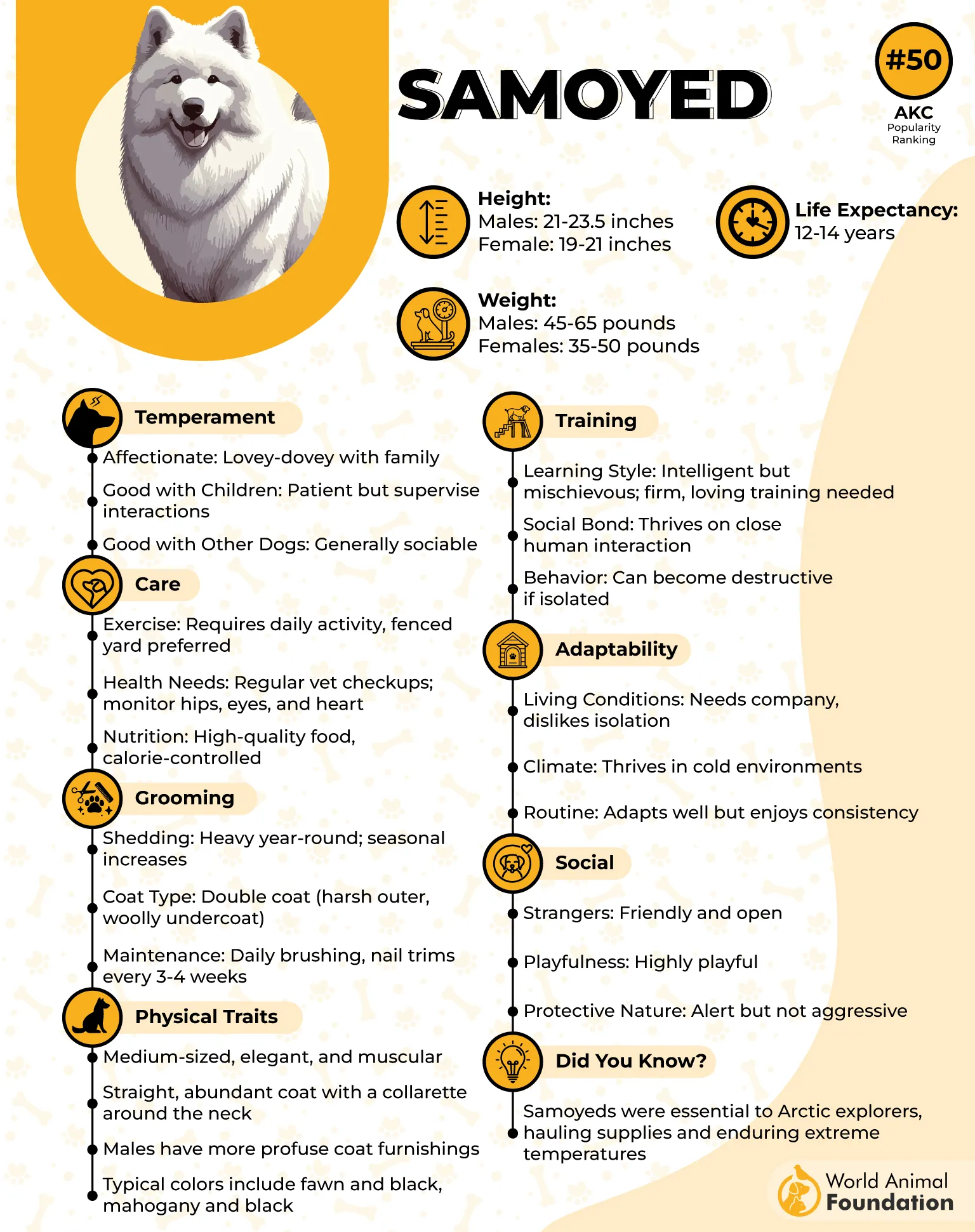
Personality-wise, Samoyeds are gentle, sociable, and as friendly as they come. These pups are extremely people-oriented and thrive on being part of the family. They’re smart, playful, and surprisingly determined when given a task.
Though not as intense as some other herding breeds, Samoyeds are more like the calm, collected managers of the duck world—less shouting, more gentle guidance (with a sprinkle of charm and fluff).
Why They’re Great at Duck Herding:
Gentle Herders: They rely more on presence than pressure, making them ideal for sensitive animals like ducks.
Eager to Please: They love working with people and are happiest when they’re involved in group activities.
Fluffy Disguise: Ducks often underestimate them—until it’s too late and they’re back in the pen.
Samoyeds have a thick, double-layered coat that helps protect them from extreme cold, along with a distinctive “Sammy smile” formed by their upturned mouth corners, giving them a friendly and approachable expression.
They are intelligent and energetic dogs that require regular exercise and mental stimulation to stay happy and healthy. Their beautiful coat needs frequent grooming to prevent matting and to keep it looking its signature fluffy white.
Fun Fact: That famous Samoyed smile? It’s not just cute—it keeps them from drooling too much in cold weather. Bonus: no frozen whiskers mid-herd!
4. Shetland Sheepdog
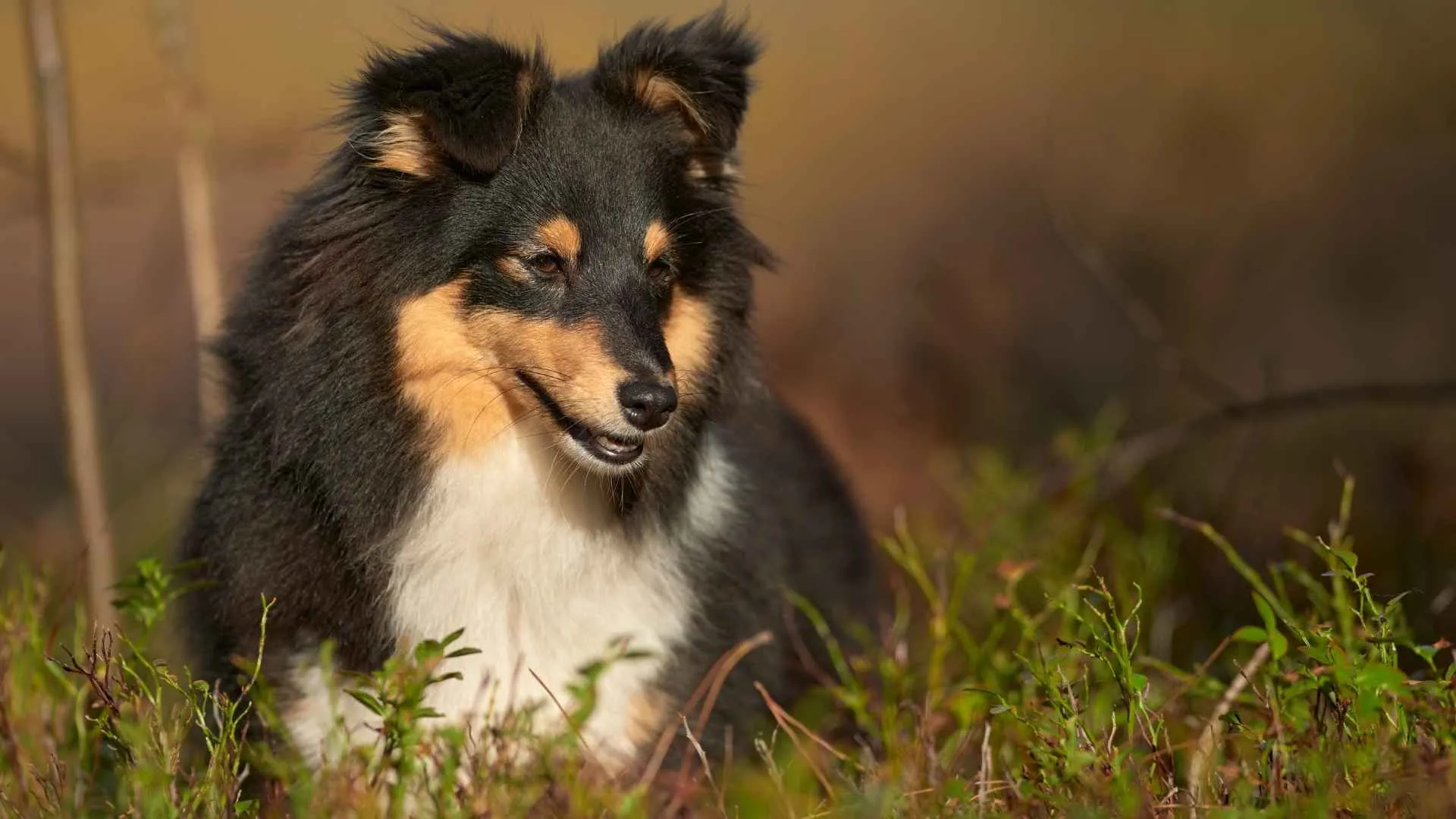
Don’t let the fluff fool you—the Shetland Sheepdog, affectionately known as the Sheltie, is basically a genius in disguise. Originally bred on the rugged Shetland Islands of Scotland to herd tiny livestock, Shelties bring that same precision, speed, and smarts to herding ducks.
Adult Shelties typically stand between 13 and 16 inches tall and weigh from 15 to 25 pounds. Like Collies, they have a wedge-shaped head, erect ears, and a long, straight coat that appears in various color patterns.
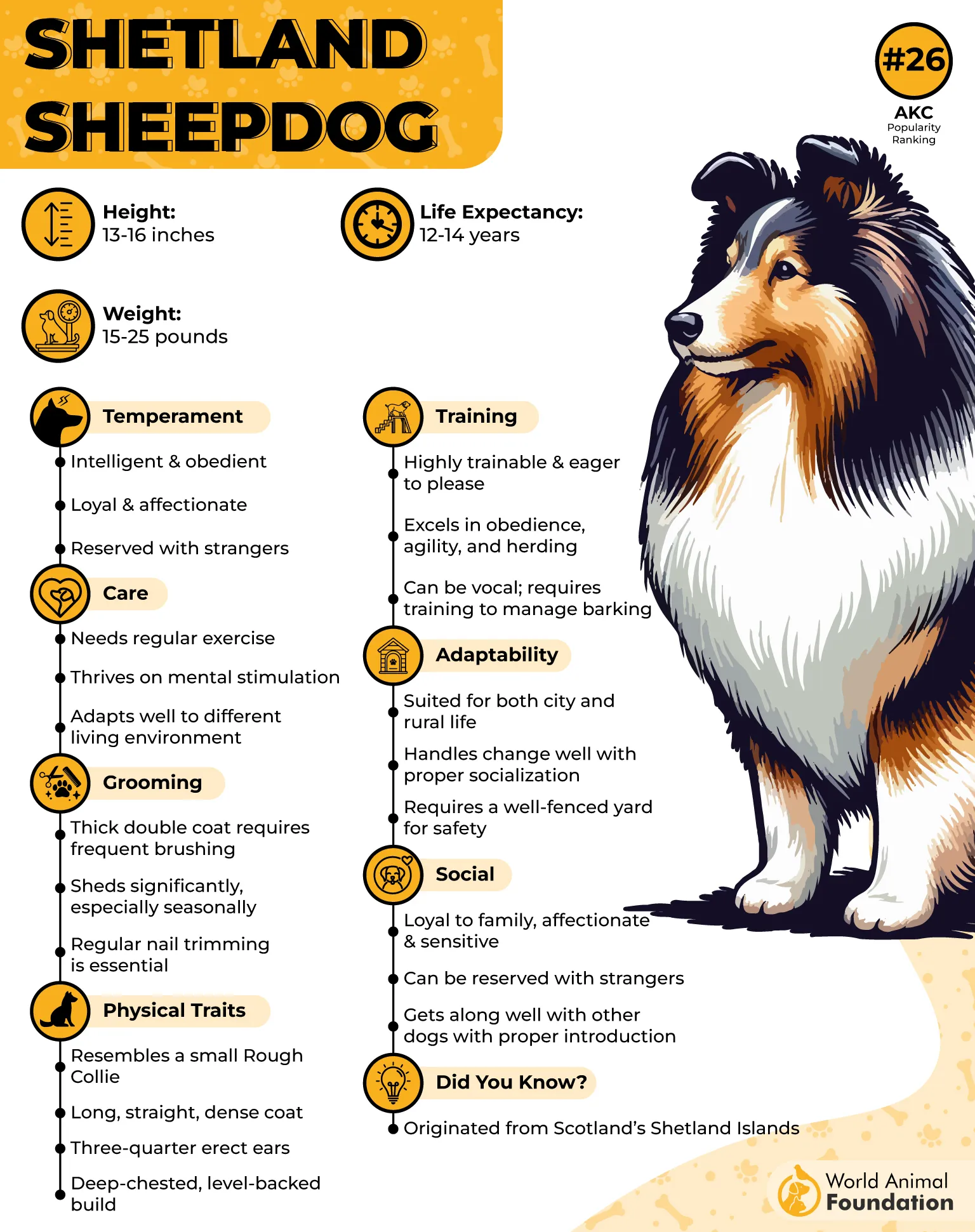
Think of Shelties as the honor students of the herding world: bright, eager, and never turning in homework late. Shelties are favored as family pets due to their gentle nature and eagerness to please.
Personality Snapshot:
Incredibly Smart: Quick to learn and always a step ahead—sometimes of you, sometimes of the ducks.
Sensitive Souls: They read the room—and the barnyard—like pros.
High Energy, High Drive: A Sheltie will out-herd the competition and look fabulous doing it.
However, as working dogs, their high energy levels mean they need plenty of physical exercise and mental challenges to avoid developing unwanted behaviors.
PetMD noted that Shetland Sheepdogs can be cautious around strangers and often welcome visitors with barking, either to alert their family or because of excitement.
They love a challenge and thrive when given tasks to perform, which is why herding ducks becomes more of a calculated ballet than a chaotic chase. Add in their sensitive, affectionate nature, and you’ve got a hardworking pup that also moonlights as your emotional support system.
Fun Fact: Their love of barking makes them excellent at announcing rogue ducks, mail carriers, or suspicious leaves blowing by.
5. Belgian Malinois
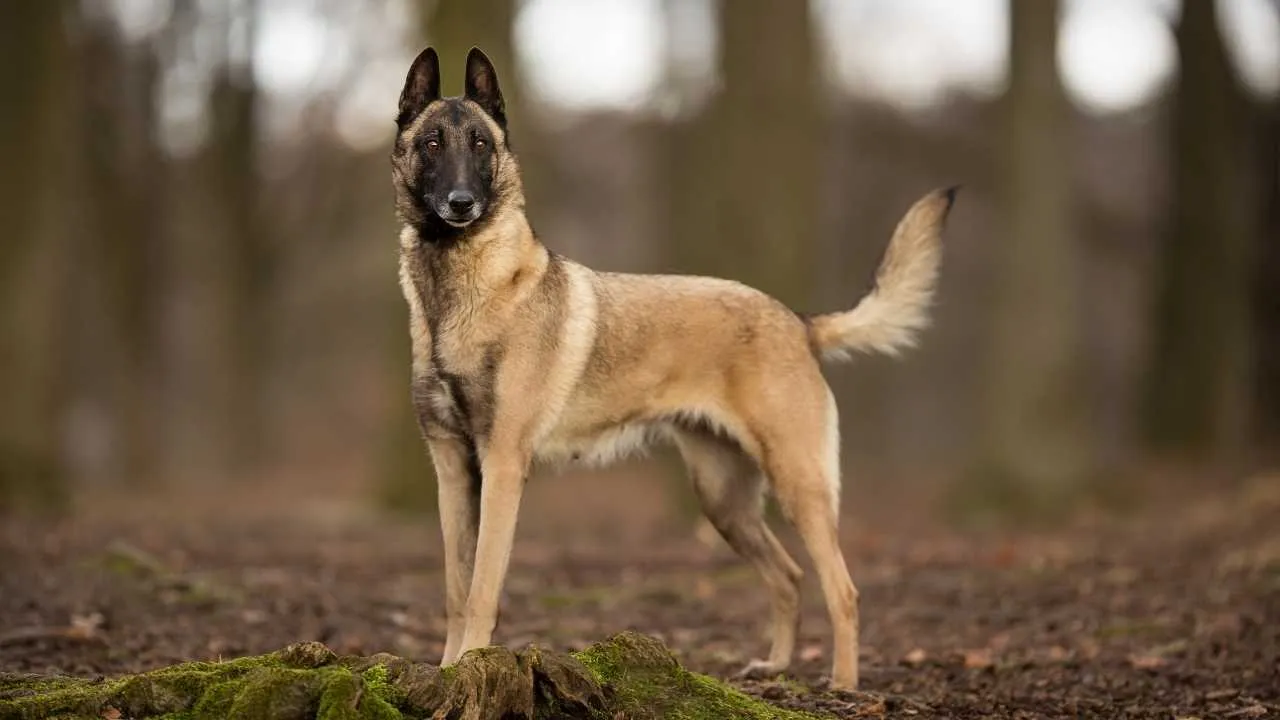
If there were a special forces team for duck herding, the Belgian Malinois would be the team leader in a tiny headset, coordinating everyone like a pro.
The Belgian Malinois is a highly energetic and intelligent dog breed, known for its strong work ethic, agility, and loyalty. The Malinois was developed as a herding dog but has since become one of the most popular breeds for police, military, and protection work worldwide.
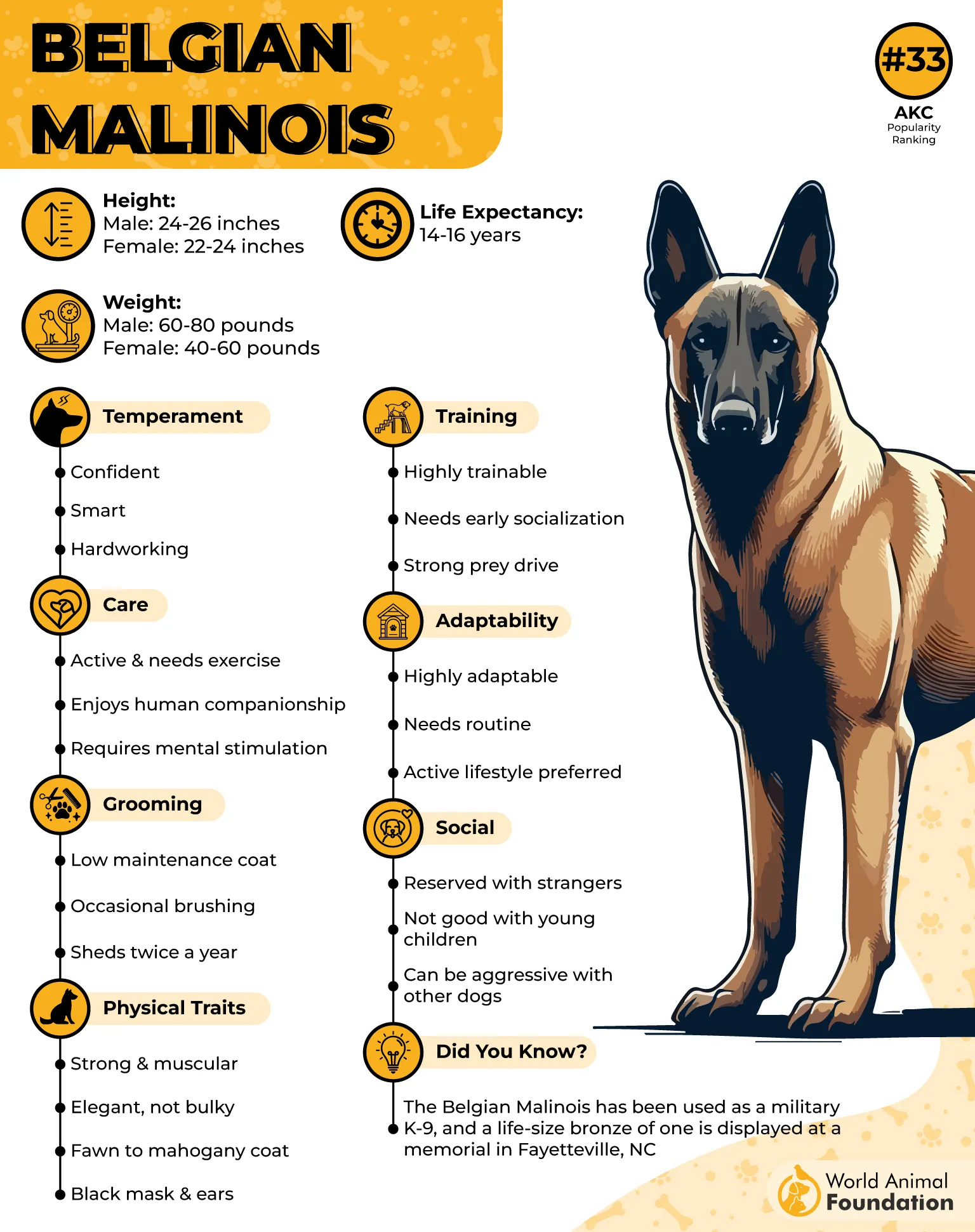
They have a well-muscled, athletic build, medium-sized dogs with a short, straight coat that typically comes in fawn to mahogany colors with a black mask and ears.
Belgian Malinois are intense, focused, and fiercely loyal. They’re not the kind of dog that “kind of” wants to herd ducks—they want to herd all the ducks, all the time, in alphabetical order if possible. Their high intelligence and unshakable work ethic make them perfect for any task that involves movement, timing, and strategy.
Personality Snapshot:
Driven & Determined: They don’t give up. Like, ever. You’d better have backup ducks.
Loyal to the Core: A Malinois forms tight bonds and takes their “job” seriously—even if that job is just watching ducks like a feathered security detail.
Energizer Pup: These dogs need a challenge. Duck herding? A+ enrichment opportunity.
They are also deeply devoted to their families, forming strong bonds and often acting as protective companions.
Due to their high energy and intelligence, Malinois require plenty of physical exercise and mental stimulation to stay happy and well-behaved. They are best suited for experienced dog owners who can provide consistent training, socialization, and an active lifestyle
Fun Fact: Belgian Malinois are so trainable that they’ve been skydived into operations. So herding a few ducks? Yeah, they got this.
6. Bouvier des Flandres
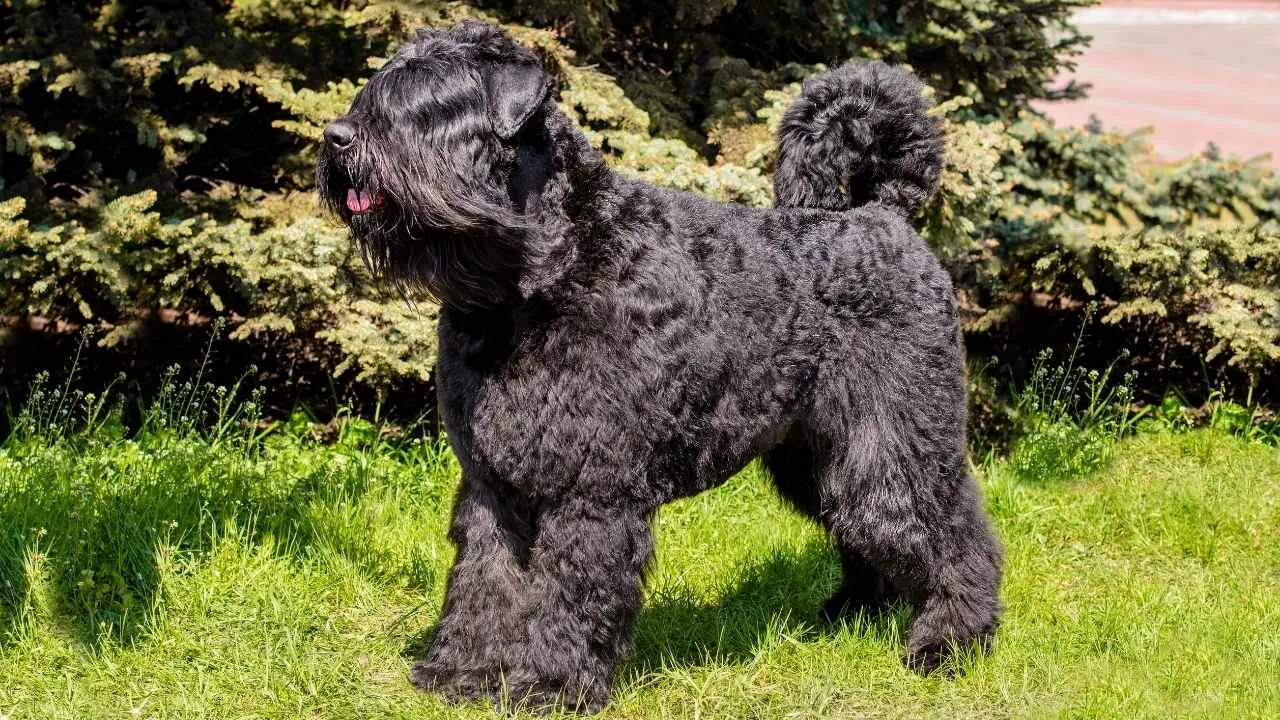
The Bouvier des Flandres might look like a giant, scruffy philosopher, but don’t be fooled—this is a serious working dog with a PhD in Herding Strategy. Originally bred to herd cattle and pull carts in Belgium, Bouviers bring both brains and brawn to the duck-herding game.
Known for their rugged appearance, Bouviers have a strong, muscular build and a thick, coarse double coat that helps protect them from harsh weather.
Their fur is typically rough and can come in colors like fawn, brindle, or black. One of their distinctive features is their bushy beard and mustache, giving them a wise and rugged look.
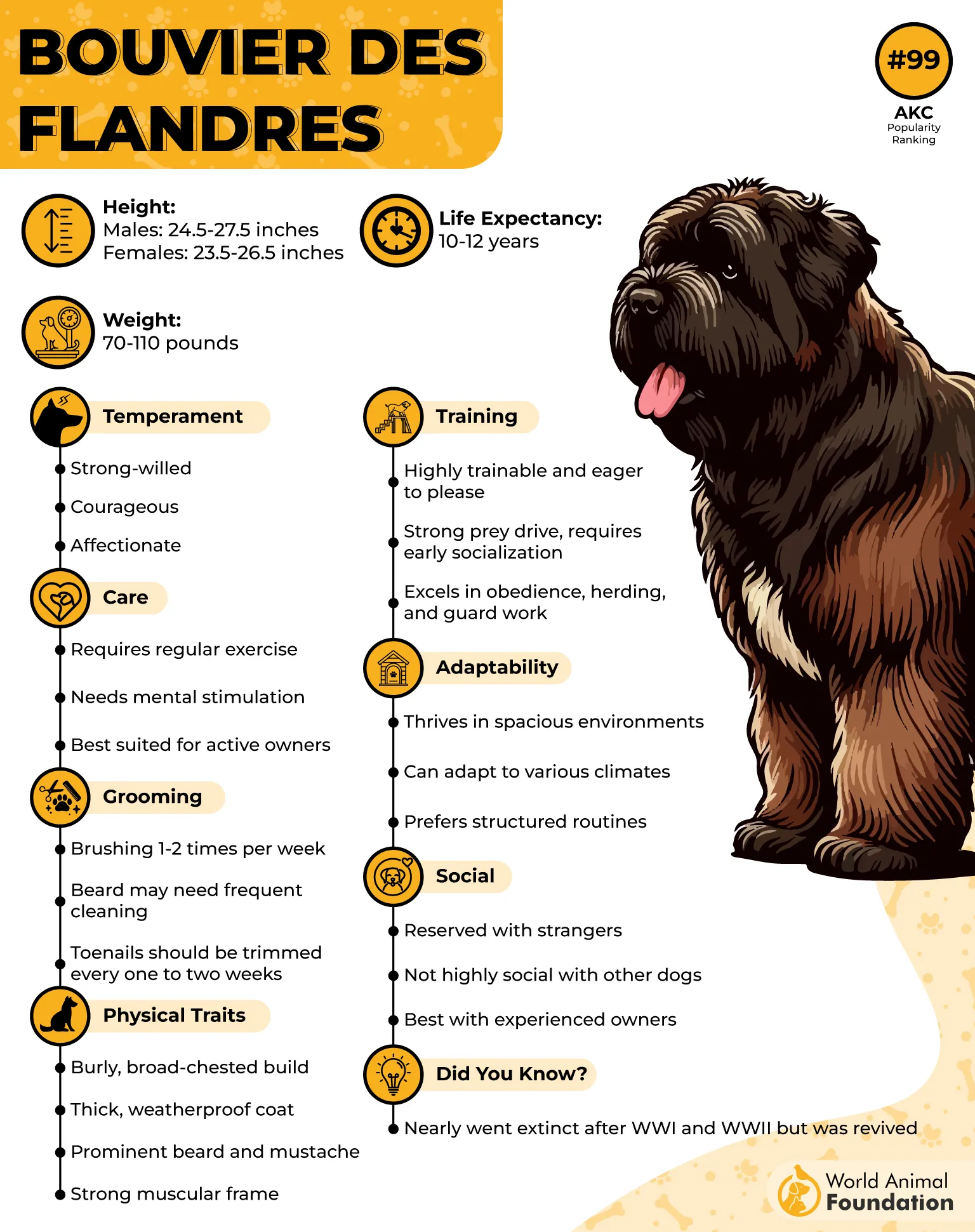
And thanks to their keen instincts and calm-but-confident demeanor, they’re surprisingly graceful at guiding those waddling little flappers.
According to AKC, Bouviers are natural protectors and excellent watchdogs, often watching over their flock (and their humans) like a furry sentinel. With their powerful build and commanding presence, ducks tend to fall in line without a lot of backtalk.
Personality Snapshot:
Strong-Willed & Steady: They like having a job and expect you to trust their decisions, especially if it involves duck diplomacy.
Loyal Guardians: Protective but never overbearing, they bond deeply with their family.
Intelligent & Sporty: They enjoy herding trials and will gladly accept any challenge that lets them show off.
This breed requires regular exercise and mental stimulation to stay balanced and happy. Due to their working background, Bouviers thrive when given a job or purpose and benefit from consistent training and socialization.
Fun Fact: That big beard isn’t just for style—it’s part of their rugged charm, which includes being a surprisingly agile duck wrangler.
7. Border Collie
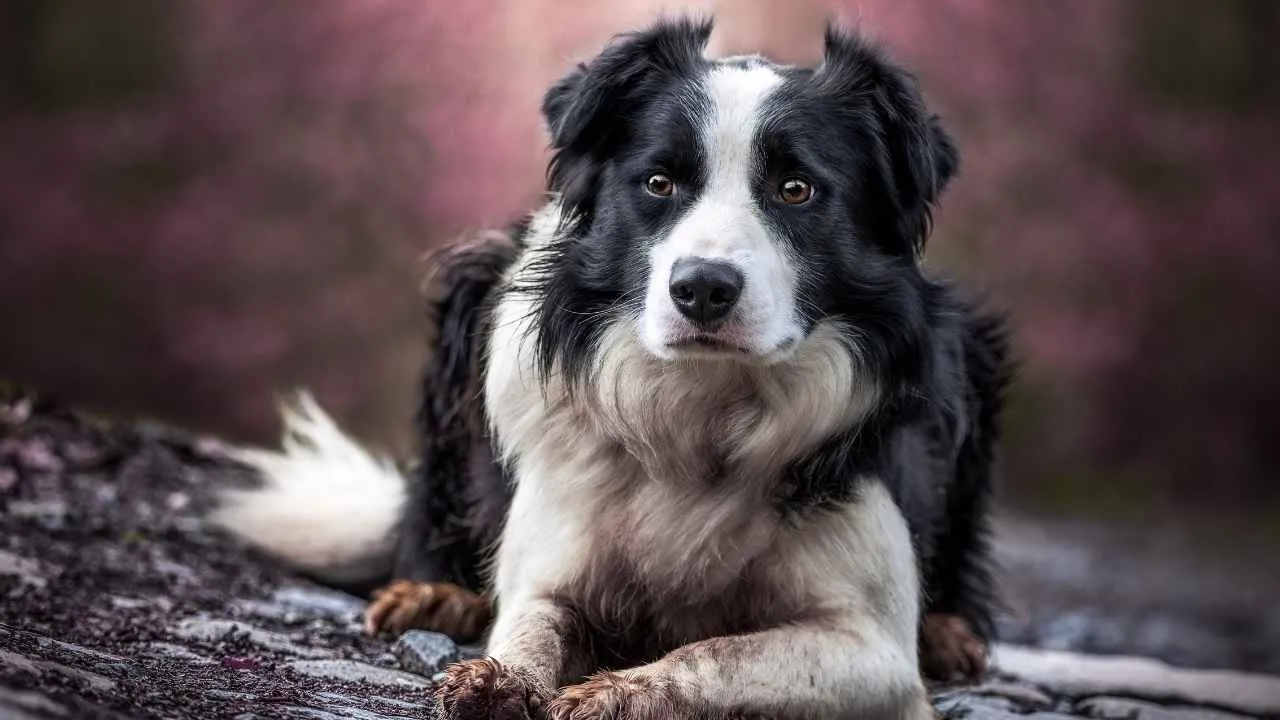
Meet the Border Collie, AKA the overachiever of the canine world. If ducks held elections, they’d vote this brainiac out of the yard because he’s just too good at his job.
With laser focus, lightning-fast reflexes, and an almost eerie ability to predict a duck’s next move, the Border Collie doesn’t herd—he choreographs.
Border Collies have a medium-sized, athletic build with a dense double coat that can be either smooth or rough, coming in a variety of colors such as black and white, red and white, or tricolor.
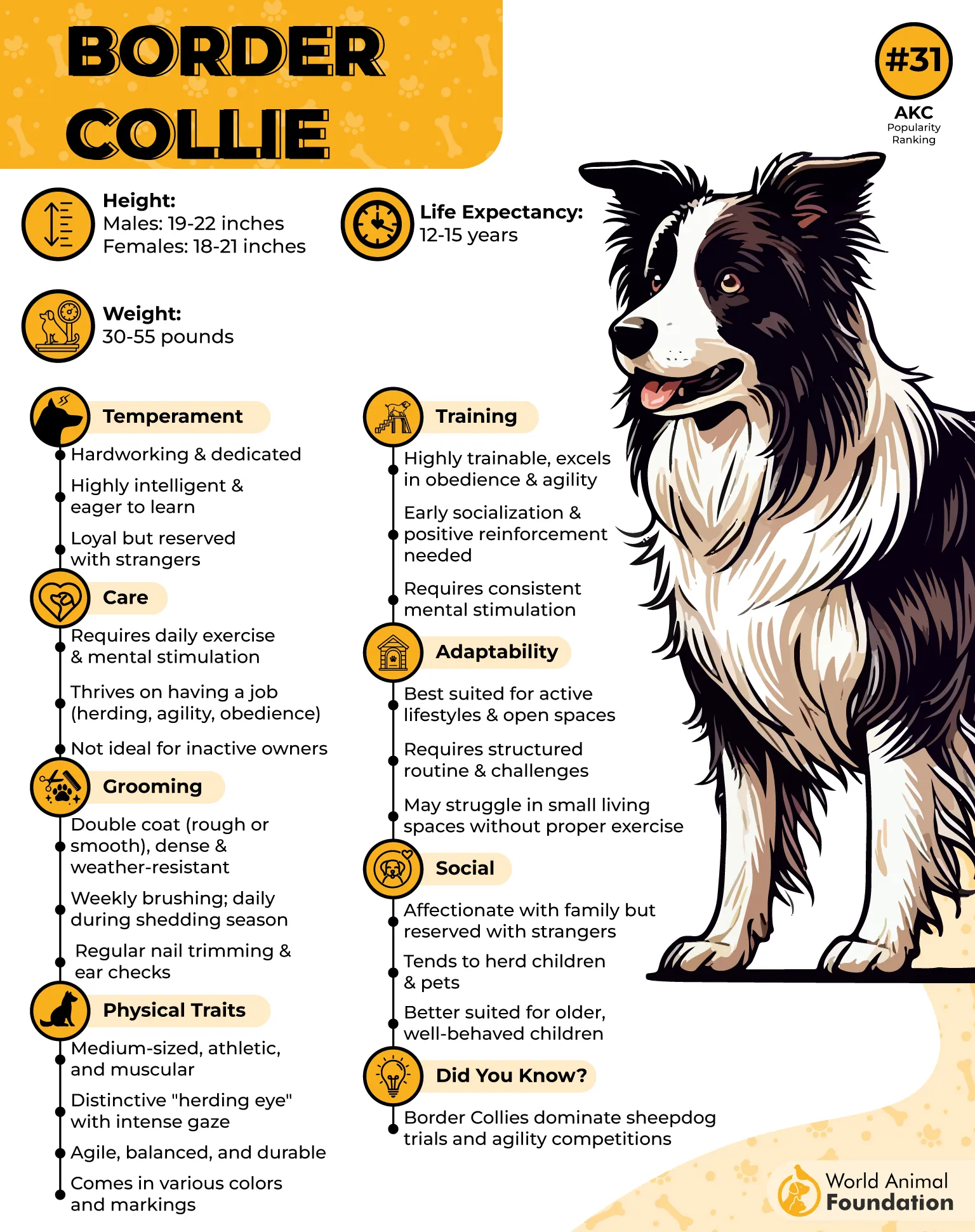
Often referred to as the smartest dog breed on Earth, Border Collies thrive when given mentally stimulating tasks. Duck herding is like their version of Sudoku—fun, challenging, and deeply satisfying. They work with such precision that it feels like they were born holding a whistle and clipboard.
Personality Snapshot:
Incredibly Smart: They’ll learn the layout of the duck pen faster than you do.
Energetic & Driven: A Border Collie without a job is like a supercomputer without Wi-Fi—frustrated and wasted potential.
Sociable & Sensitive: They love their people and are usually friendly with other animals too (even the ones they’re herding).
Known for their intense focus, quick learning ability, and high stamina, Border Collies thrive in active environments where they can engage in plenty of physical exercise and mental challenges. They are highly trainable and excel in dog sports like agility, obedience, and herding trials.
While they are affectionate and loyal to their families, Border Collies require consistent stimulation to prevent boredom, which can lead to destructive behaviors. Overall, the Border Collie is a devoted, hardworking, and intelligent companion best suited for active owners who can meet their exercise and mental needs.
Fun Fact: Border Collies often use “the eye”—a piercing stare—to control their flock. Yes, ducks know fear.
8. Australian Shepherd
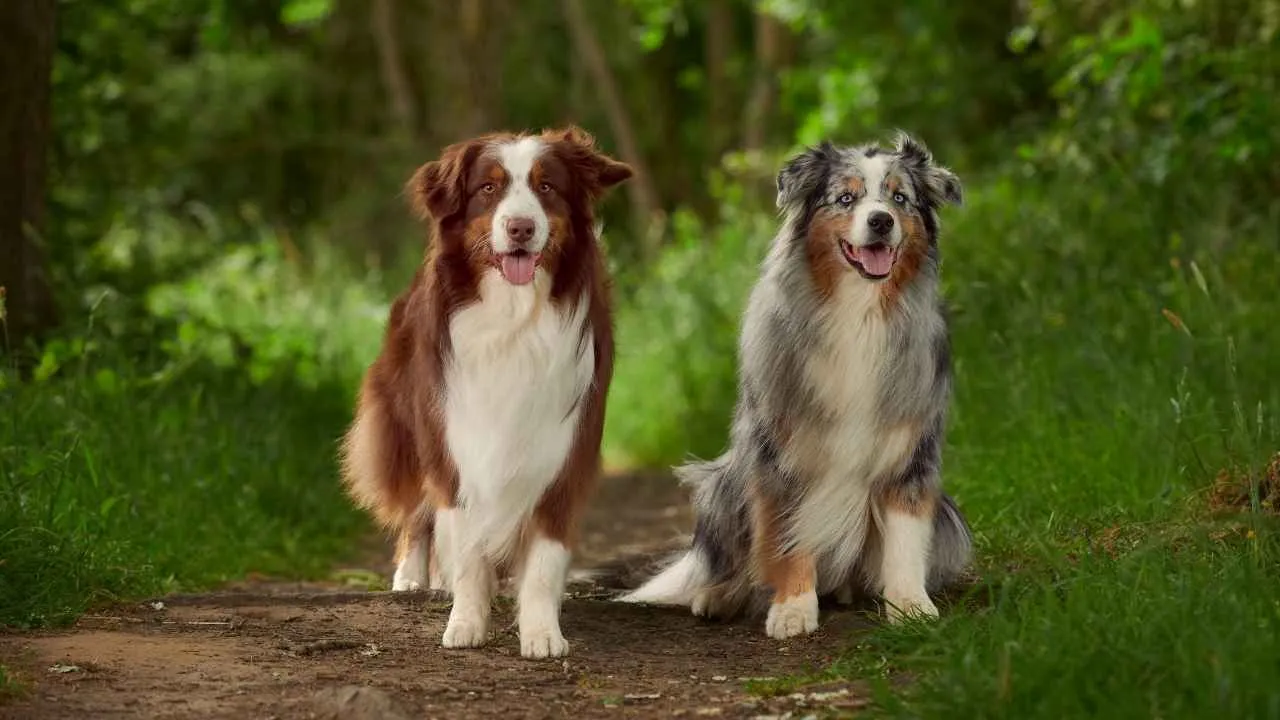
The Australian Shepherd, affectionately known as the “Aussie,” is not actually from Australia—but don’t tell them that; they’re too busy herding ducks with style. Agile, energetic, and wicked smart, Aussies are the canine equivalent of a multitasking yoga instructor who’s also really into competitive sports.
Despite its name, the breed was developed in the United States to work as a versatile herding dog on ranches and farms. Australian Shepherds have a well-balanced, athletic build with a dense, weather-resistant coat that comes in a variety of colors, including blue merle, red merle, black, and red, often with white and tan markings.
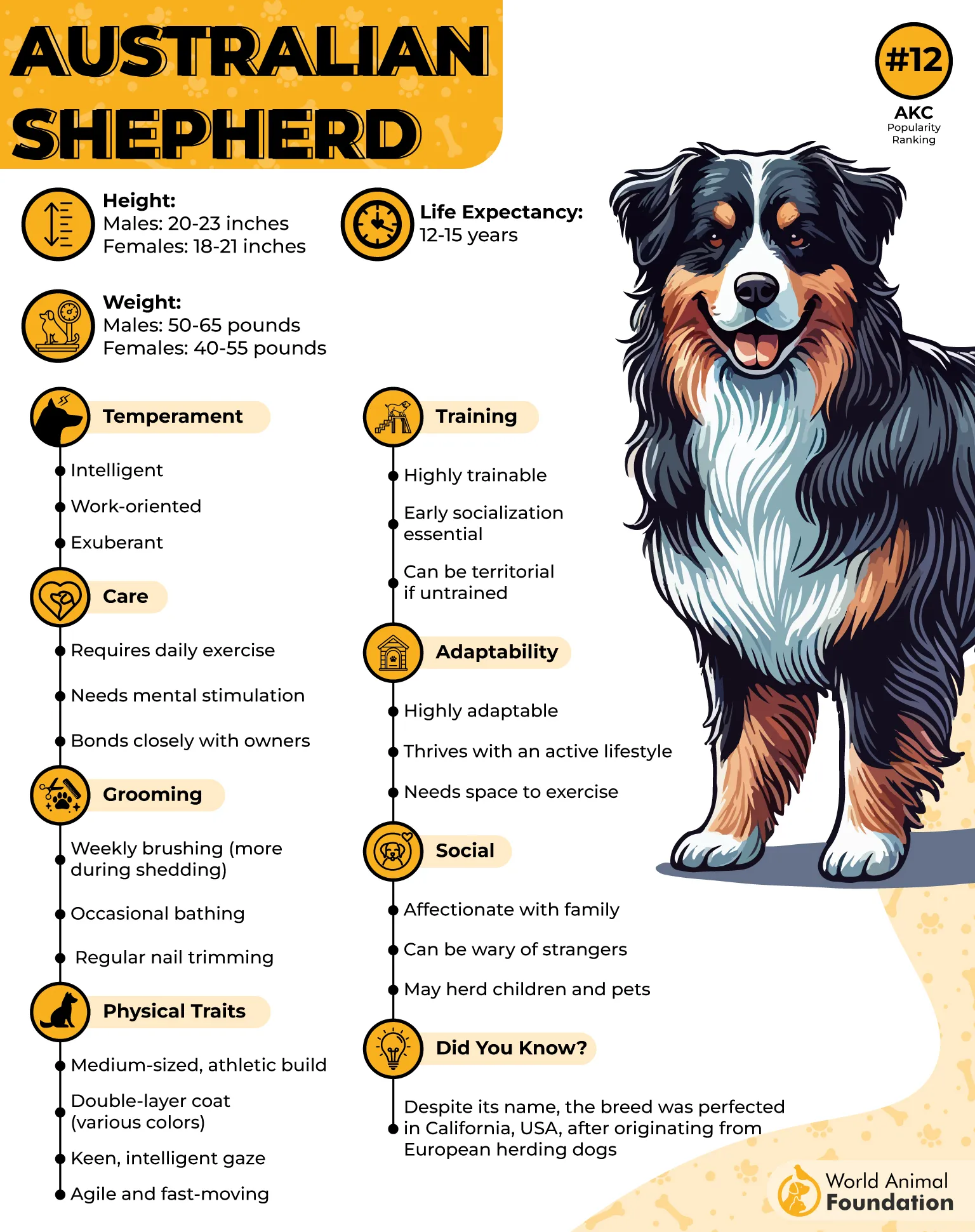
These medium-sized dogs live for a job, and duck herding is right in their wheelhouse. They’ll zig, they’ll zag, they’ll outthink the entire flock before breakfast. And with their expressive eyes (sometimes one blue, one brown!), they could probably convince the ducks to self-organize if they wanted to.
Personality Snapshot:
Clever & Coordinated: If ducks ran obstacle courses, this dog would coach them through it.
People-Oriented: Loyal and affectionate, Aussies love to be your partner-in-herding-crime.
Boundless Energy: If you’re not tired, they’re not done.
They are affectionate and loyal to their families but require plenty of physical exercise and mental stimulation to stay happy and healthy. Australian Shepherds excel in dog sports such as agility, obedience, and herding competitions.
Because of their high energy and working background, they do best in active households that can provide consistent training and ample opportunities for exercise.
Fun Fact: That stunning merle coat isn’t just for looks—Aussies take style and skill to a whole new level.
9. Maremma Sheepdog
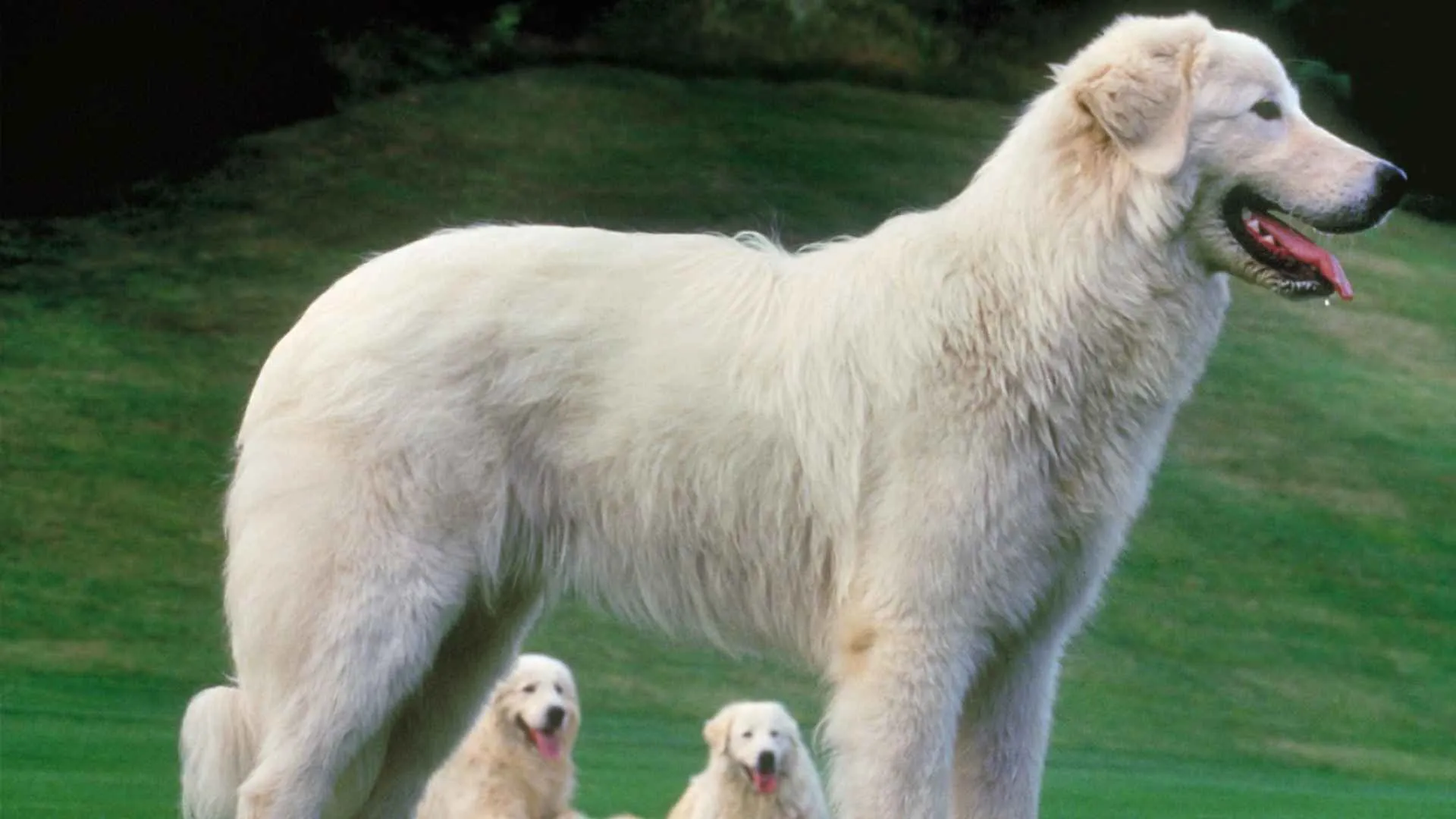
The Maremma Sheepdog may look like a fluffy cloud of calm, but underneath all that floof is a guardian dog with a serious sense of duty.
Traditionally used to protect sheep from wolves in Italy, Maremmas are more watchdogs than wranglers, but when trained from a young age, they can be surprisingly effective at keeping ducks safe and orderly.
These dogs are intelligent, independent, and protective, forming strong bonds with their flock or family. While they are gentle and affectionate with those they trust, they can be reserved or wary of strangers.
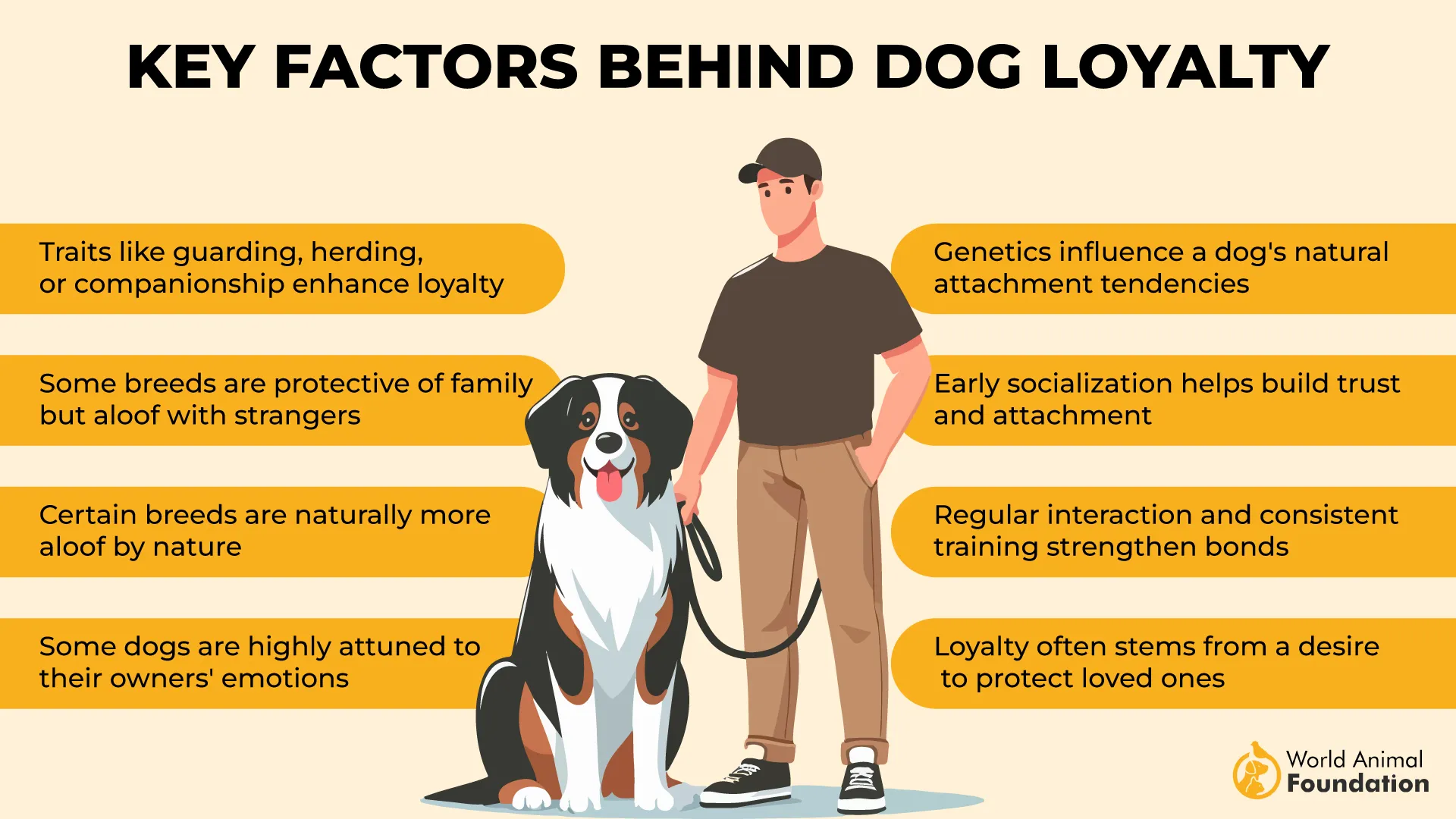
These dogs don’t chase as much as they loom strategically, often giving off “I’m not mad, just disappointed” energy that ducks seem to respect.
Personality Snapshot:
Independent Thinkers: They prefer to make their own decisions… unless you’re holding treats.
Loyal & Protective: They’re basically feathered flock bodyguards.
Low-Key But Alert: Calm on the outside, always watching.
Due to their guarding instincts, Maremma Sheepdogs require early socialization and consistent training. They need plenty of space to roam and regular exercise to stay healthy and happy. Overall, the Maremma Sheepdog is a loyal, courageous, and dependable protector, ideal for rural or farm environments where they can perform their traditional role.
Fun Fact: Maremmas are still used today in Australia to guard penguins. Yep, real-life duck cousins.
10. Catahoula Leopard Dog
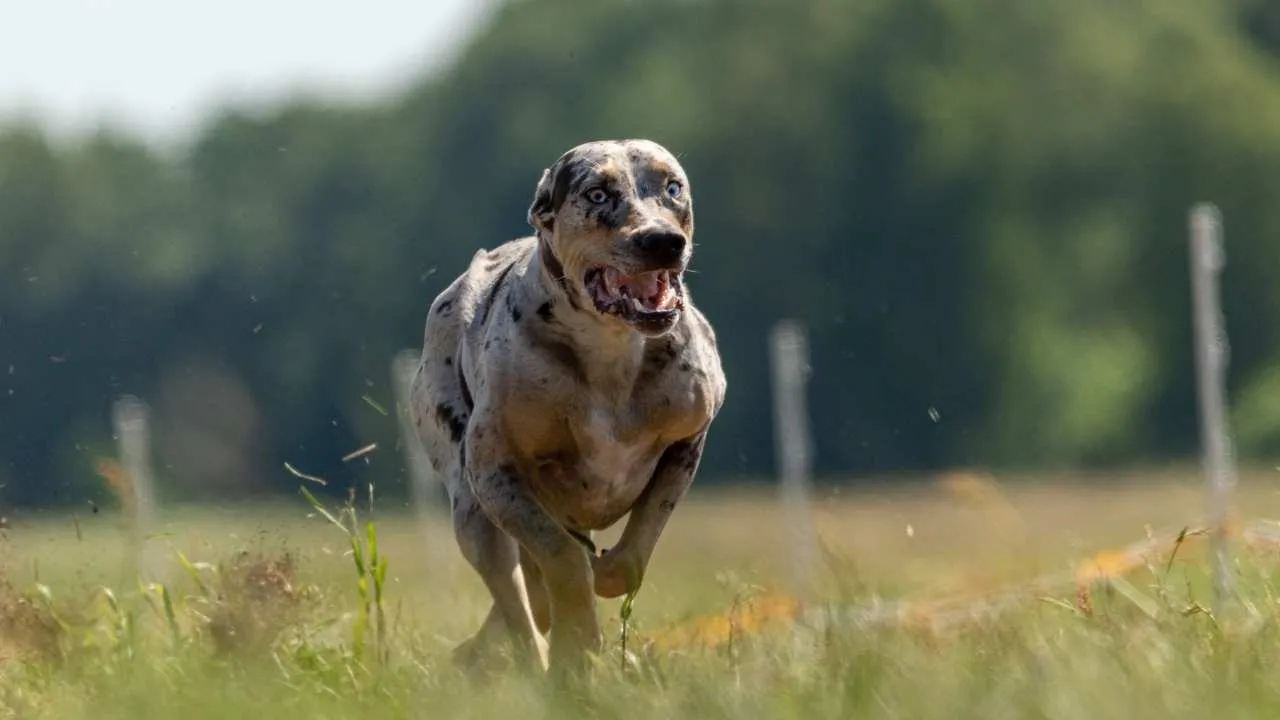
The Catahoula Leopard Dog isn’t your average herder—they’re more like a tactical genius in a camo-print coat. Developed in Louisiana to wrangle wild hogs and cattle, these dogs are all business when it’s work time—but loyal, loving companions once the boots come off.
The Catahoula Leopard Dog is a medium to large-sized breed known for its striking coat patterns and exceptional versatility. Catahoulas are easily recognized by their unique “leopard” spotted or mottled coat, which can come in a variety of colors, including blue, red, black, and brindle, often paired with striking blue or multicolored eyes.
As per Wikipedia, Catahoulas serve multiple roles, including bay dogs, tree dogs, and hunters of various wild animals. They hunt both small game like raccoons and squirrels, and larger animals such as deer, mountain lions, and bears. Additionally, they are used for scent trailing and also work as search and rescue dogs.
Their intense drive makes them effective duck herders with the right training. But be warned: if you don’t give them enough exercise and mental challenges, your couch cushions might become their next “project.”
Personality Snapshot:
Work-Oriented & Serious: Ducks are a task, not a toy.
Independent Yet Affectionate: They’ll guard your livestock and your heart.
High-Energy & Bold: They need room to run—and a mission.
They are loyal and protective, making excellent family companions as well as skilled working dogs. Due to their high energy levels and strong instincts, they require plenty of physical exercise and mental stimulation.
Early socialization and consistent training are important to help them become well-rounded and obedient pets. Overall, the Catahoula Leopard Dog is a hardworking, versatile, and striking breed suited for active owners who can meet their needs.
Fun Fact: Catahoulas are the official state dog of Louisiana. They’ve got that Southern grit and charm.
Conclusion
Dog breeds that excel in herding ducks often have strong herding instincts and are part of the working group. Breeds like the German Shepherd, Bearded Collie, Pyrenean Shepherd, and Old English Sheepdog are excellent herders, capable of managing other livestock such as goats, sheep, and horses. These dogs are known for their trainability, hard work, and ability to cover long distances.
Gentle giants with a small size or prey drive can also be effective in herding. Starting training at an early age enhances their skills, making them capable guards and hunters. Overall, these breeds combine natural instinct with dedication to excel in herding ducks and other animals.


